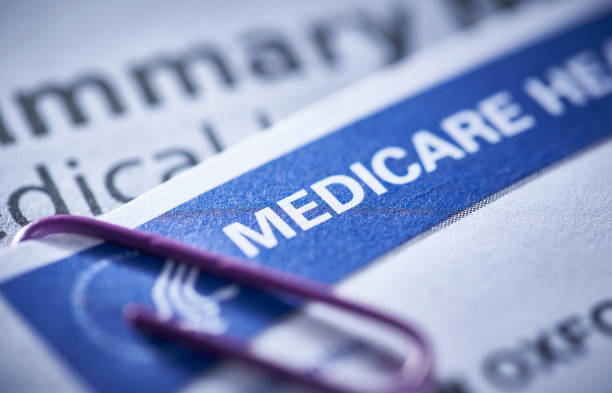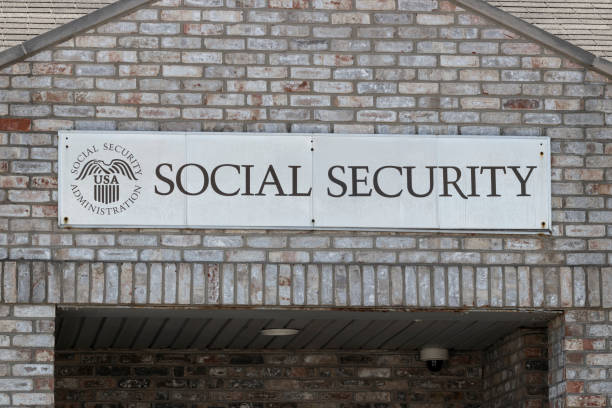Healthcare, Insurance
What Medical Benefits Do Seniors Get
As we become older, our healthcare demands vary, and we may require more medical attention. Fortunately, seniors have access to a variety of medical benefits that can help them pay for their healthcare expenses. In this article, we will look at some of the medical benefits that seniors might obtain.
Medicare is one of the best-known medical benefits for seniors. Medicare is a federal health-insurance program that provides coverage for a wide range of medical services, including hospitalization, doctor visits, and prescription medicines. It is open to people 65 and older, as well as those with certain disabilities. We shall go into greater detail on Medicare later in this article.
In addition to Medicare, seniors have access to a wide range of other medical benefits. These benefits can help with the cost of healthcare, prescription drugs, and other medical expenses. In the sections that follow, we will go over some of these benefits.

Medicare and Enrollment
When most seniors reach the age of 65, they become eligible to join in Medicare, a federal health insurance program that covers a wide range of medical services. Understanding Medicare allows seniors to make informed decisions regarding their healthcare coverage.
Understanding Medicare
Medicare is divided into four parts: Part A, Part B, Part C (sometimes called Medicare Advantage), and Part D.
- Part A includes hospital stays, skilled nursing care, and hospice care.
- Part B includes doctor appointments, preventive care, and medical equipment.
- Part C combines Parts A and B and frequently adds extra benefits like dental and vision care.
- Part D covers prescription drug costs.
Enrollment Periods and Eligibility
Seniors can enroll in Medicare during their Initial Enrollment Period, which runs three months before and three months after their 65th birthday. If they miss this deadline, they may face a late enrollment penalty.
Seniors who are still working and have employer-provided health insurance may qualify for a Special Enrollment Period. They can enroll in Medicare without penalty if they retire or lose their job coverage.
Medicare Advantage Plans
Seniors who participate in a Medicare Advantage plan receive their benefits from a commercial insurance firm. These plans generally include additional benefits such as dental and eye care. However, the fees and limits may differ from those of Original Medicare.
Prescription Drug Coverage
Seniors enrolled in Original Medicare can add Part D coverage to their plan to assist cover the cost of prescription medicines. Medicare Advantage plans frequently include prescription medication coverage, so seniors should carefully consider their alternatives before enrolling.
Overall, understanding Medicare and enrollment is critical for seniors to make informed healthcare choices. We encourage that elders thoroughly consider their options and speak with a healthcare practitioner before enrolling in a plan.

Additional Health Care Programs and Assistance
As elders get older, their medical demands tend to grow. Fortunately, there are various programs available to help cover the costs of health care. In this part, we’ll look at some of the additional health-care programs and services available to seniors.
Medicaid and Dual Eligibility
Medicaid is a state-run program that offers health insurance to low-income people. It covers a wide range of medical services, including as doctor visits, hospitalizations, and prescription medications. Seniors who are eligible for both Medicare and Medicaid are referred to be dual eligible. Dual-eligible seniors may be eligible for additional benefits such as home health care and nursing home care.
Supplemental Security Income (SSI)
This is a government program that offers financial support to low-income seniors. SSI can help with the cost of essential necessities including food, shelter, and clothes. In addition, SSI may be able to aid with medical expenses.
Medicare Savings Programs
These are state-run programs that assist low-income seniors with their Medicare premiums and other out-of-pocket expenses. Medicare Savings Programs are classified into four types, each with its own set of eligibility conditions. These programs might be a great help for seniors who are struggling to pay for medical care.
Extra Help with Prescription Costs
Extra Help is a federal program that helps low-income seniors pay for prescription medicines. This program can help seniors save money on their drugs while also ensuring that they have access to the medications they require to remain healthy. There are also various low-cost prescription drug programs available to help seniors save money on their drugs.
Finally, there are a number of programs available to assist elders in paying for medical care. From Medicaid to Extra Help, there are numerous programs available to ensure that seniors receive the medical care they require. If you or a loved one is suffering to pay for medical treatment, we encourage you to look into these programs to see if you are eligible for help.

Benefits Beyond Health Care
As seniors, we are entitled to several benefits beyond health care. These perks are intended to make our lives simpler and more enjoyable. In this section, we will go over some of these benefits and how they can aid us.
Social Security Benefits
The Social Security Administration pays compensation to seniors who are retired or handicapped. These benefits include retirement, disability, and survivor benefits. To qualify for these benefits, you must have worked and paid Social Security taxes for a specified number of years. Your benefit amount will be determined based on your earnings history.
Housing and Living Assistance
Seniors who require assistance with housing and living expenses may be eligible for aid. The federal government offers aid through programs like the Section 8 Housing Choice Voucher Program and the Low-Income Home Energy aid Program. These initiatives assist seniors in paying their housing and utility costs.

Discounts and Recreational Activities
Seniors can receive discounts on a wide range of products and services. Many entertainment venues provide senior discounts, and seniors can also receive discounts on travel and recreational activities. The National Park Service provides seniors with a lifetime pass that permits them free access to national parks and other government recreation locations.
Finally, as seniors, we are entitled to a number of benefits other than health care. These benefits can help us pay for housing and living expenses, get discounts on goods and services, and participate in recreational activities. It is critical to take use of these benefits and enjoy our golden years to the best.
Conclusion
Finally, senior medical health benefits are critical to ensuring older people’s well-being and quality of life. These benefits include a variety of services, ranging from preventive care to specialty treatments, all of which are tailored to the specific healthcare needs of the elderly. These benefits help seniors manage chronic diseases and promote overall health by covering all medical expenses, including critical medications and specialist geriatric care. Access to such healthcare support not only improves individual health outcomes for seniors, but also helps to build a more robust and sustainable healthcare system that emphasizes the demands of an aging population. Recognizing the significance of senior medical health benefits is critical to creating a society that appreciates and prioritizes the health and dignity of its elderly citizens.


